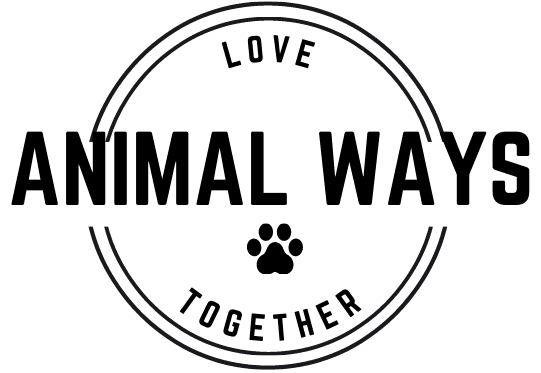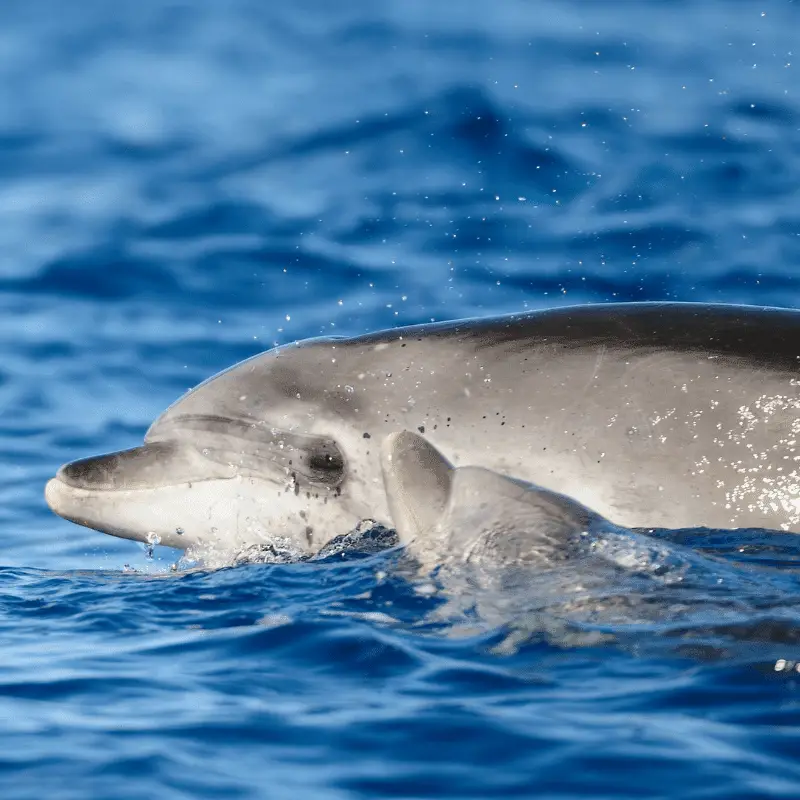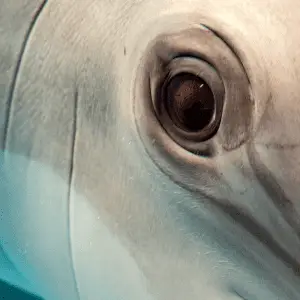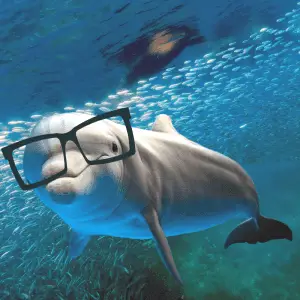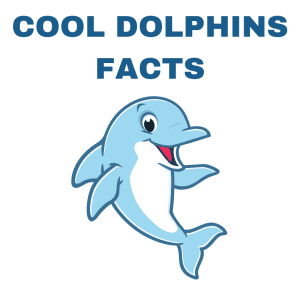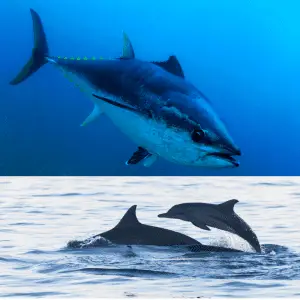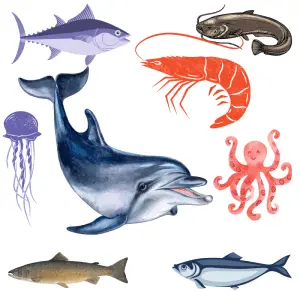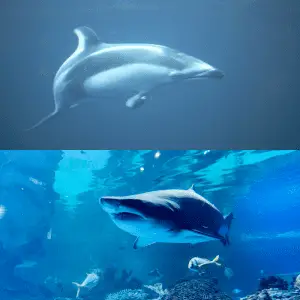On rare occasions, dolphins can kill their babies, but there is no evidence of eating them. The act of mother dolphins killing baby dolphins is known as infanticide. Even though infanticide can be found in many other land mammals, this behaviour in dolphins is sporadic.
We now know that dolphins do not eat their babies. However, dolphins can kill their babies in rare incidents.
Why would an adult dolphin kill a calf?
Dolphins rarely kill a baby dolphin, but when they do, it could be because of a lack of food, competition, mating purposes, territorial dispute, or a defence mechanism enforced by the group members.
Mating Purposes
Sadly, adult male dolphins can kill a calf to free the female dolphin for mating purposes.
Female dolphins do not mate until their current baby has been weaned completely. It can take about three to four years for a baby dolphin to become completely independent of its mother’s milk. That means a particular female dolphin will be unavailable for mating during this period.
By killing the calf, the female dolphin will be free to mate.
| Animal | Reason |
|---|---|
| Hippopotamus | Hippos are known to eat their young if they are sick or deformed. |
| Crocodiles | Crocodiles may eat their young if they are too weak or slow to keep up with the rest of the group. |
| Snakes | Snakes may eat their young if they cannot find enough food to sustain them. |
| Bears | Bears may eat their young if they are too weak or slow to keep up with the rest of the group. |
| Lions | Lions may eat their young if they are too weak or slow to keep up with the rest of the group. |
| Rats | Rats may eat their young if they cannot find enough food to sustain them. |
Competition
A male dolphin will kill a dolphin calf to remove the progeny of a potential competent male member from the gene pool. Killing the male infant dolphin is a way for other dolphins to remove the competition.
Recommended Read: Do dolphins kill and eat sharks?
Dolphins and Humans
Even though dolphins have a massive reputation for being cute, friendly, and curious animals, they can be highly vicious from time to time. Dolphins do not generally attack humans since humans are not prey. However, they can significantly injure a person at any time.
Dolphins are aggressive mammals that do not enjoy the company of humans as much as we think they do. Especially during the period of breeding, dolphins become more aggressive. Even though most of the aggressiveness of the dolphins tends to target the porpoises, the number of attacks on humans is not uncommon.
We must remember that dolphins are wild animals, and it is still impossible for us to domesticate them. Dolphins would rather keep away from humans. However, this injury occurs when people often try to play with dolphins while swimming in the sea.
The number of attacks caused by the captivated dolphin is on the rise. As more and more people participate in the swimming with dolphins activity with the captive dolphins, these incidents can rise significantly over time. It is assumed that these captive animals live in stressful captivity where they are forced to interact with humans and perform various activities daily, like kissing people.
Dangerous
Even though most people think that dolphins are smiling, cute animals, they are wild mammals. The industry created this attractive image of dolphins feeding, playing, kissing, and swimming with humans.
Dolphins are aggressive predators. Even though the industry refuses to promote its predatory nature, dolphins can be dangerous. These complex marine hunters can inflict significant injury on each other and humans. Most of the time, dolphins avoid attacking humans, but there is evidence that dolphin attacks have severely injured people. So, preventing active interactions with dolphins in the wild and marine parks is always better.
